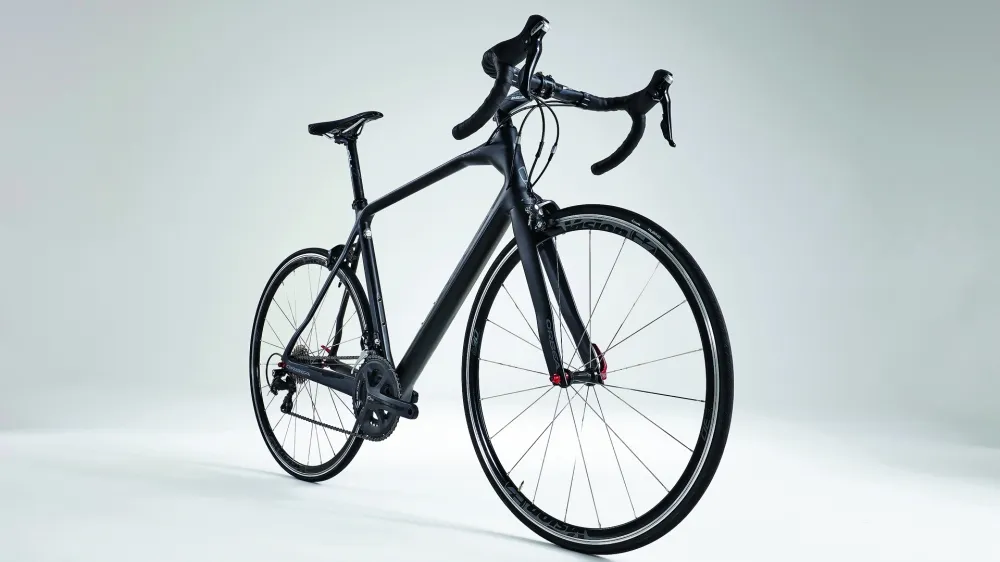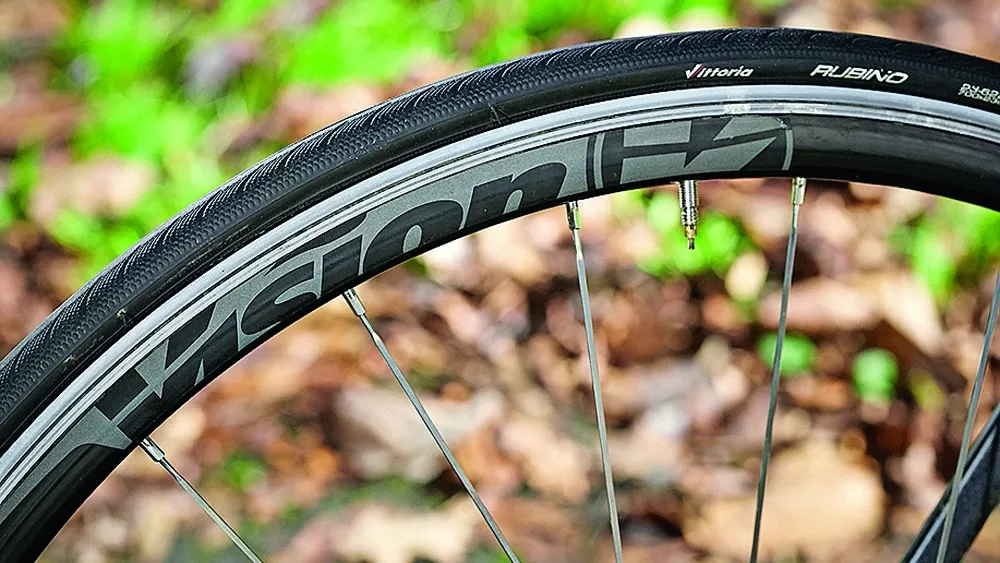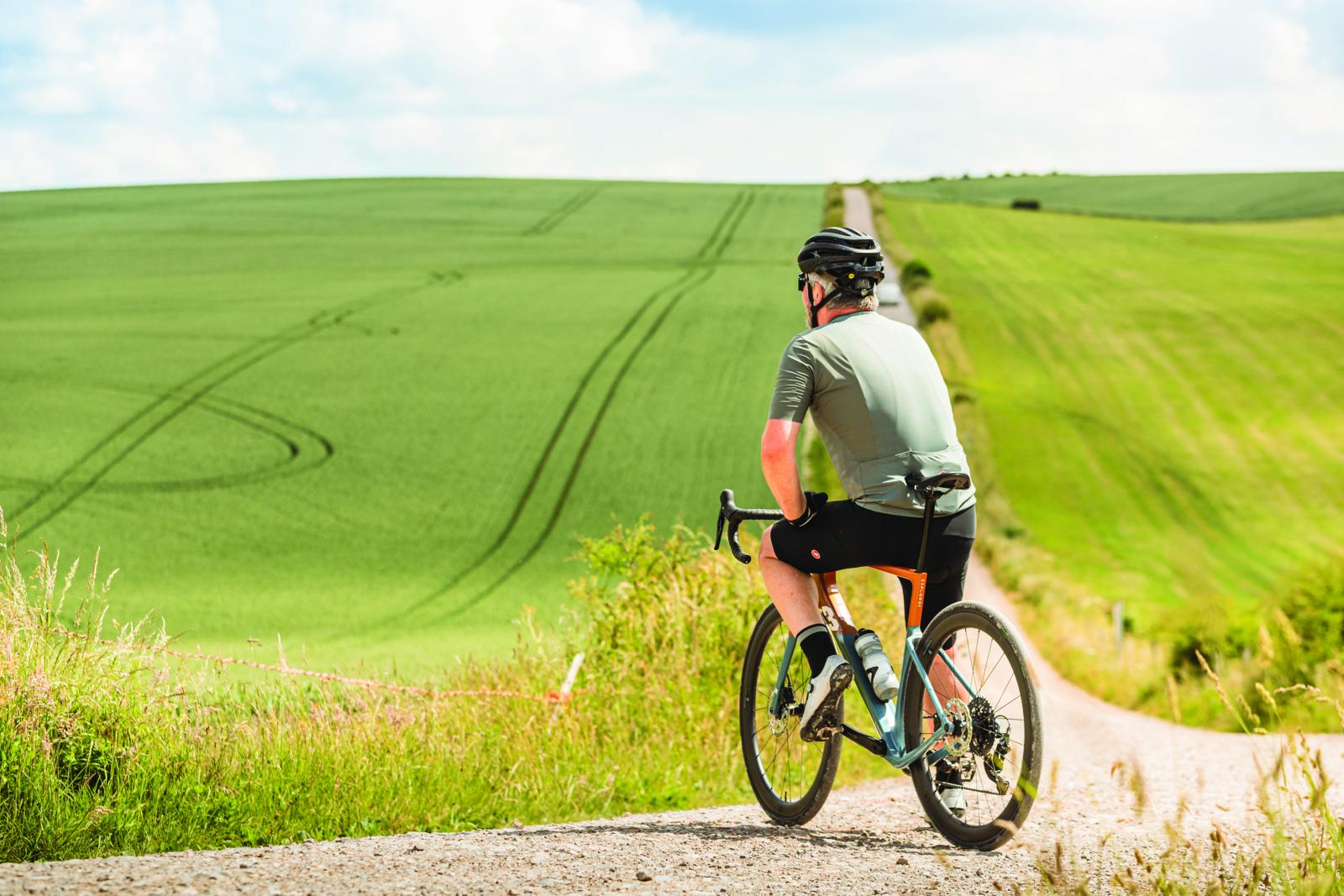The all-new Orca is a major departure for Orbea. Rather than the previous model’s fancy sculpted, fluted aero seat clamp, aluminium head badge-cum-internal cable guide and polished dropout inserts, the new Orca has been stripped down, slimmed down and smoothed out in preparation for the brand’s new partnership with pro team Cofidis. The new frameset slips well below 1kg.
- Highs: Fantastic new chassis that’s light, with great handling and acres of smoothness
- Lows: Tyres are overly fragile, and far too prone to puncture
- Buy if: You’re looking for a race bike that combines a comfortable ride with sharp and responsive handling
The fork follows the traditional narrow blade design, kinking outwards towards the dropouts and creating a slim front end that flows seamlessly into the tapered head tube. At the rear, slimmer seatstays meet deep chainstays, which blend into an oversized press-fit bottom bracket shell – this featuring a neat slot for a Quarq power meter magnet. Surprisingly, Orbea claims the Orca is 24 percent stiffer than the outgoing model – we never found the old one wanting.
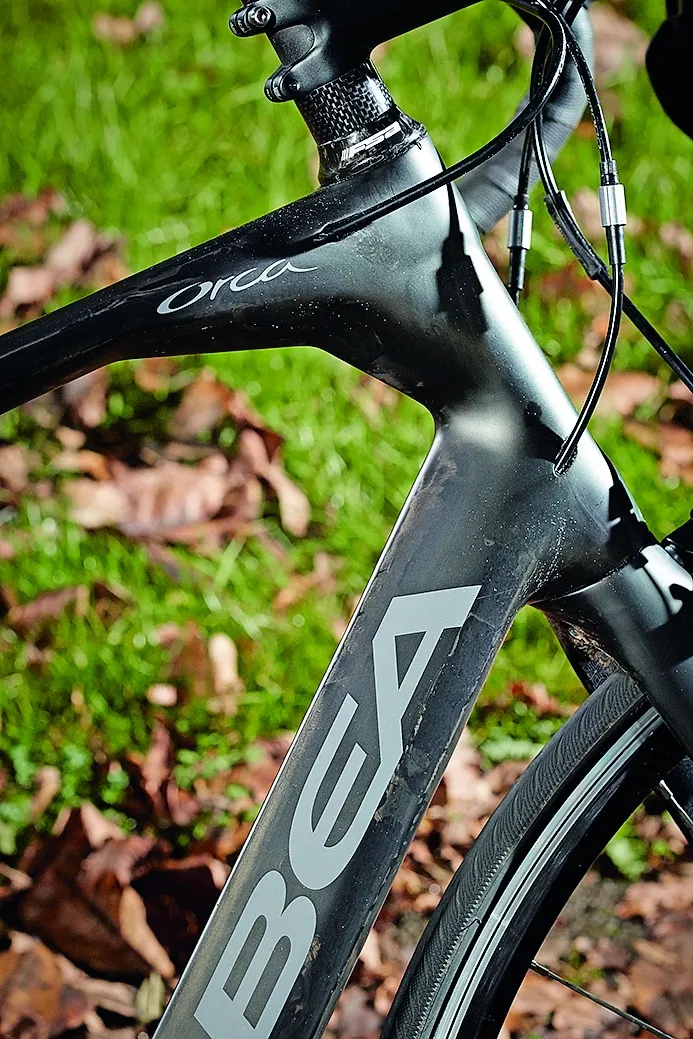
A rock solid front end brings impressively direct handling
Its ride is a revelation. It’s not breathtakingly light, but that’s how it feels: light, lively and responsive. The front end is rock solid and the handling impressively direct, while the slender seatstays and skinny 27.2mm carbon seatpost make the rear end feel fluid and smooth. On the longest, toughest climb of our test loop it felt rapid and alive, and the sportive-friendly gearing of 50/34 compact with an 11-28 cassette makes it a great long-distance choice.
The geometry is true Grand Tour stuff, though: with a low front end, mid-length wheelbase and sharp head and seat angles, it balances stability and quick responses with absolute precision.
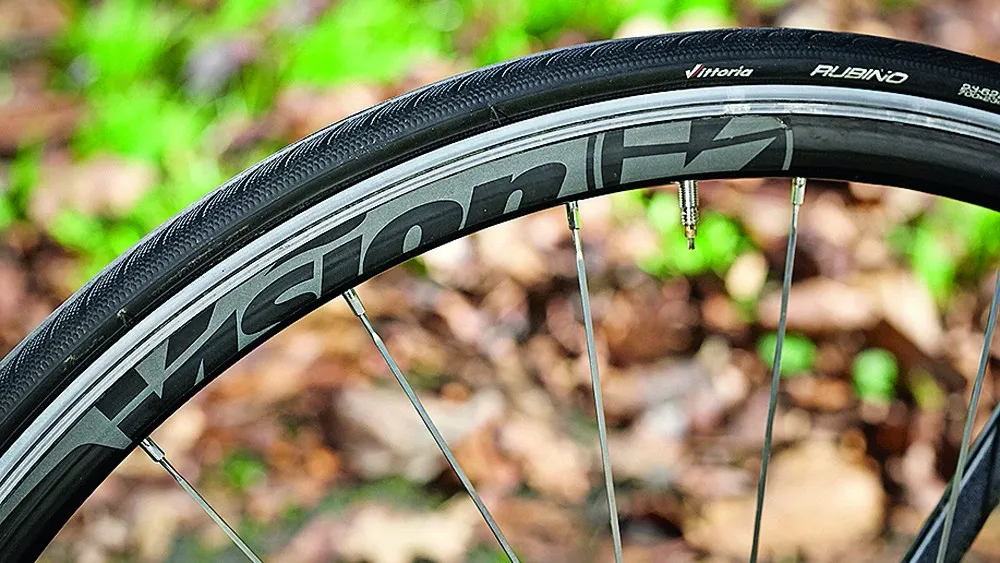
Upgrading to Vision T30s unfortunately meant puncture-prone tyres
When the road points downwards and your speed starts to rise, the Orca’s nimble, flickable handling makes for a heap of fun, but it’s tempered by one simple flaw: the tyres. Using Orbea’s online specification system, we upgraded from the standard Aksium wheelset to Vision T30s, which weigh around 1500g and have a light riding feel, but the basic 23mm Rubino tyres from Vittoria that they come with are just too fragile.
Grip is good, but on rougher roads they’re prone to cuts and pinch punctures; on our first two test rides – 72 miles and 45 – we had six punctures. With a great set of rubber the Orca would be exceptional, and in hindsight we should have opted for the Mavic Ksyrium upgrade with better tyres.
